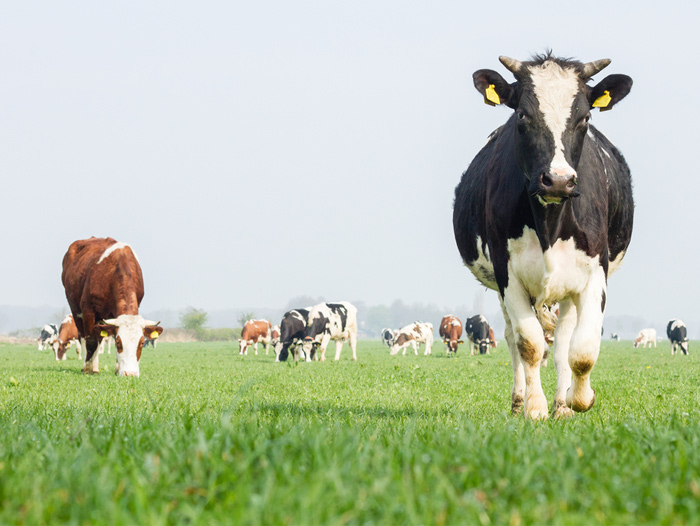IDFA Commends Ag Committee Leaders for Farm Bill that Improves Dairy Risk Management, Boosts Milk Consumption
December 19, 2018 | 3 min to read

Washington, D.C. – The International Dairy Foods Association (IDFA) commended House and Senate Agriculture Committee leaders for releasing the 2018 Farm Bill, which would allow greater access to risk management tools for dairy foods companies and farmers to address price fluctuations. The bill would also extend the Dairy Forward Pricing Program to 2023, improve the safety net for dairy farmers and create a new program within the Supplemental Nutrition Assistance Program (SNAP) to improve participants’ diets by increasing fluid milk consumption.
“Managing price risk and increasing consumption are IDFA’s key priorities, and we commend the farm bill conferees and the leaders of the House and Senate Agriculture Committees — Chairman Mike Conaway, R-Texas; Ranking Member Collin Peterson, D-Minn.; Chairman Pat Roberts, R-Kan.; and Ranking Member Debbie Stabenow, D-Mich. — for producing this bill. It will provide increased health benefits to consumers, while empowering dairy processors and producers to help fuel the American economy,” said Michael Dykes, D.V.M., IDFA president and CEO.
“In preparation for the farm bill debate, which began last year, IDFA worked closely with colleagues at the National Milk Producers Federation to unite behind shared solutions for dairy,” Dykes added. “Members of Congress have called our collaborative efforts historic, refreshing and, best of all, exceedingly helpful to their farm bill efforts. The dairy provisions included in the bill represent the positive outcomes we can gain through sustained industry collaboration,” he said.
The legislation includes provisions that would improve the ability of Class I processors, co-ops and producers to hedge price risk. When enacted, the bill would change the Class I fluid milk mover from the higher of Class III and Class IV to the simple average of Class III and Class IV, plus a $0.74 adjustor.
“With this new pricing provision in place, both producers and processors would gain much-needed benefits from hedging fluid milk through the futures market,” Dykes said.
The bill also includes a provision to extend the Dairy Forward Pricing Program for all other classes of dairy products, which are Class II, Class III and Class IV, through 2023, as well as enhancements to the renamed Dairy Margin Coverage Program, a voluntary safety net program for dairy farmers.
“We also want to thank legislators for establishing a new program for dairy that will encourage SNAP participants to drink more milk and gain many nutrients that are essential to good health but are missing in many American diets,” said J. David Carlin, IDFA senior vice president of legislative affairs and economic policy.
The Milk Donation Program included in the bill would allow dairy processors and producers to team with charitable organizations to donate milk to people in need and to reduce food waste.
“U.S. dairy products companies support nearly 3 million jobs, generate more than $39 billion in direct wages and have an overall economic impact of more than $628 billion,” Dykes added. “Our powerful engine for American jobs and economic stimulus will only continue to contribute and grow under this farm bill.”
# # #
The International Dairy Foods Association (IDFA), Washington, D.C., represents the nation’s dairy manufacturing and marketing industry, which supports nearly 3 million jobs that generate more than $161 billion in wages and has an overall economic impact of more than $628 billion. IDFA members range from multinational organizations to single-plant companies. Together they represent approximately 90 percent of the milk, cultured products, cheese, ice cream and frozen desserts produced and marketed in the United States and sold throughout the world. The diverse membership includes numerous food retailers, suppliers, cooperatives and companies that offer a wide variety of nutritional dairy products and dairy-derived ingredients. Visit www.idfa.org.
